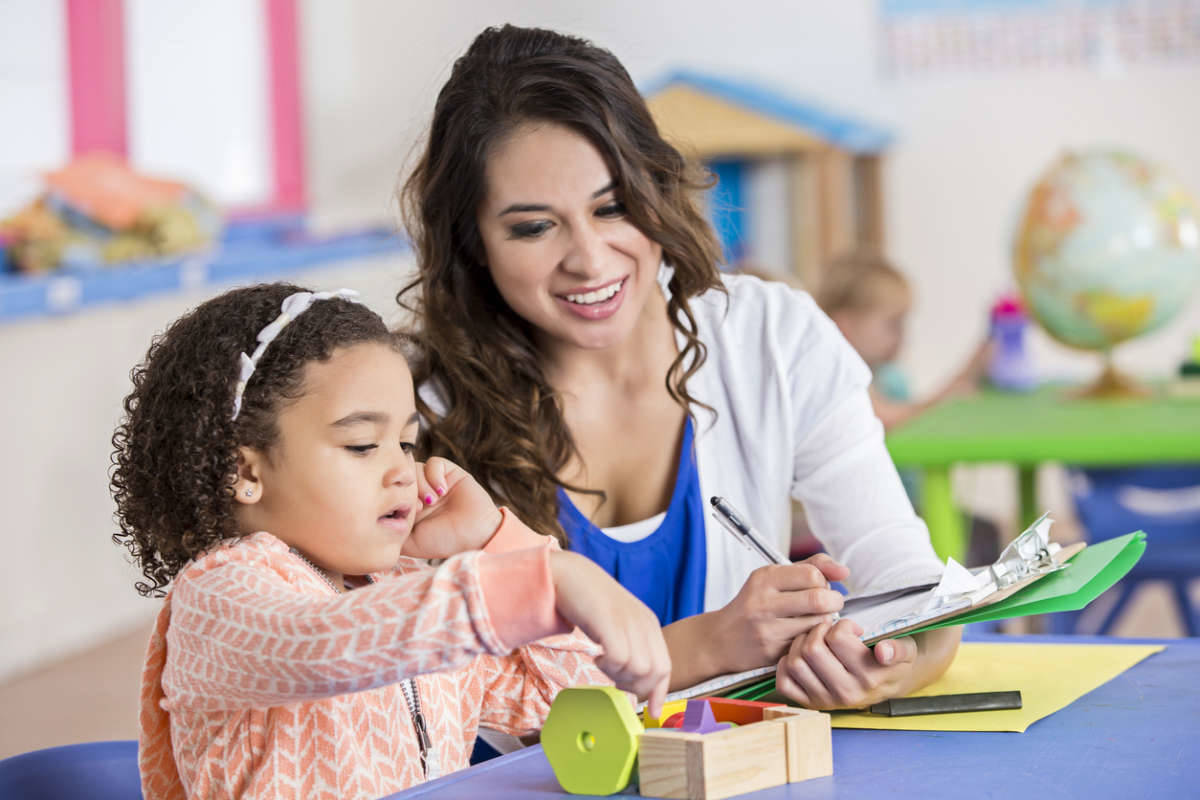
-
 By Amy McKinney
By Amy McKinney
Third-grade teacher Amy McKinney spent eight years teaching special education before moving to a general-education classroom. Now she (and several other special-ed teachers) are sharing what they wish "regular" teachers knew.

Now that I’ve taught in a regular education class for three years, I realize that my experience working with my students with special needs has given me a level of understanding that I want to share with regular education teachers.
Recently I reached out to special education teachers on an Instagram post, asking simply, “What do you wish regular education teachers knew?” I received many responses from teachers eager to share their knowledge and experience in order to help colleagues navigate the often confusing, occasionally frustrating, and absolutely incredible world of special education.
Here's a sampling of what special education teachers want their fellow teachers to know:
- “I wish regular ed. teachers knew how much we think beyond just the classroom and also about the self-esteem of special education kids. I wish they knew that sometimes we don’t know all the answers.”
—Renee Peňa Lopez (@maderenee) - “Our kids are capable and smart. They deserve to be included and educated. Just because our class size is smaller and we may have additional support, we earn every cent of our paycheck. They can’t say no to mainstreaming. I wish they wouldn’t treat our kids like a burden or a piece of furniture. Our student can hear them and their words have power, so choose them wisely.” —Stephanie M. (@teachwithginger)
- “SPED teachers are more than just disciplinarians. We are real teachers, too. When we ask for your lesson plans to modify, we need them in advance of the lesson. We’ll do a much better job of modifying! SPED paperwork is no joke. We promise we aren’t being annoying about that!” —Stephanie Layson (@swlayson)
- “[High school] special education students feel stigmatized and often try to hide it from friends. A kid with special education accommodations isn’t cheating or getting any advantages. Those accommodations level the playing field so all kids are beginning at the same point. Too often, our special education kids are fighting personal battles that we never realize. Poverty at home, broken homes, mental illness, social deficiencies—most times they are silent about it.” —Paul Zeidan (@pzeidan)
- “Students with special education services want to be a part of their classroom. They want to be just like everyone else. Include them in the little things you do in your classroom. I know it takes a lot of communication with the special education staff to make that happen, but it’s so worth it! A lot of my students go into the general education classroom during read-alouds, calendar, any craft time, parties, celebrations and birthdays.” —Amanda Davis (@simplydaviss)
- “Understanding what least restrictive environment truly means for our kids. And I would like administrators to know it is unfair to evaluate special education teachers the same as a general education teacher in a one size fit all rubric.” —Sarah W.
- “It’s important that my general education colleagues remember to include my self-contained students in grade-level activities (field trips, class plays, special STEM activities) and allow for accommodations to help them participate with the general education population. It is always helpful when the general education teachers take the time to explain that we have classes with special needs in our building and teach their students how to include my students at lunch, recess, gym, etc.” —Linda Kenngott (@coffeefueledclassroom)
- “Treat my kiddos like everyone else. They won’t break, and they love when people pay attention to them! My kiddos are capable of doing a lot, it just needs to be modified sometimes. They love being included in things with their typical peers, so don’t be afraid to invite us down to participate in activities. I know that IEPs can be scary. Don’t be afraid to ask for help understanding it. Tell my kids when they aren’t behaving appropriately. Don’t use their disabilities as an excuse for bad behaviors. And don’t be afraid to praise them either!” —Sarah Betz (@harasxlacidar)
- “They are regular education students who have special education services. First and foremost, they are a part of the general education class and should be included as much as possible. I wish more general education teachers would focus on what the kids can do. So many kids get discouraged because their teachers focus on the negative. When the special education and general education teachers work together, so much more can be accomplished.” —Melissa S. (@sillymissmel)
Teaching students with special needs may be the most challenging part of being a teacher, but it is also the most rewarding!
Are you a special education teacher? Share your thoughts with us on Instagram, Facebook, Twitter, Pinterest, and Google+.
Want to read more from this author? Find out Amy's tips on making your first year of teaching a successful one, or learn how to deal with difficult parents.
Author Bio:
Amy McKinney, M.Ed., is a third grade teacher in Pennsylvania. She has been teaching for eleven years, eight of them in special education. Her experience working with students with special needs has helped form her philosophy on teaching and collaborating with her colleagues. Follow her on Instagram: @theuniqueclassroom.
